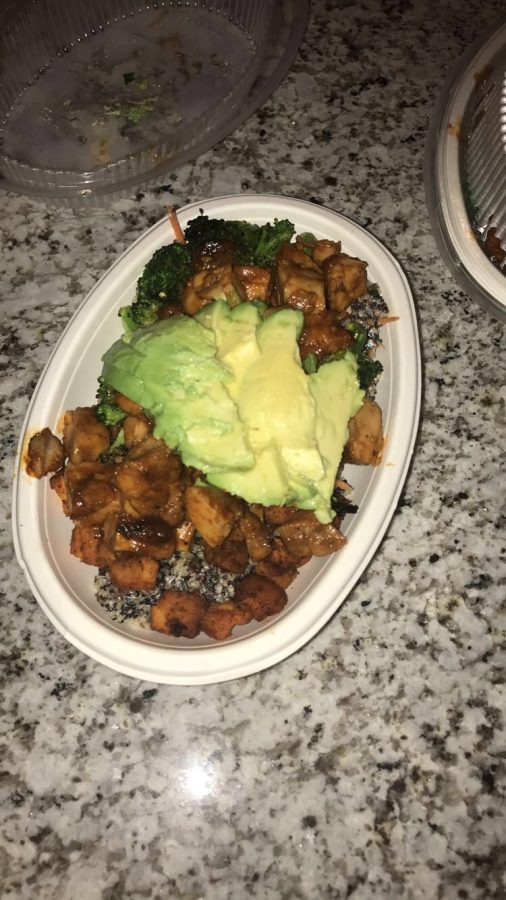Abs are made in the Kitchen
A fresh bowl of quinoa, avocado, barbecue chicken and yams from Bolay.
You can’t hit the gym and not have the proper nutrition to back it up. People these days think they can hit the gym without having a certain diet to fuel their workouts. There are plenty of healthy food options broken into three different food groups of what your daily diet should consist of: carbohydrates, fats and proteins.
Let’s start with the every carbohydrate. Carbohydrates are not as bad as you think. Carbohydrates should be the staple of your diet. For example, my top three choices would be oats, brown rice, and quinoa. Quinoa consists of carbohydrates and plenty of protein as well. Oats are great for the morning; they keep you full and provide the proper nutrition for your brain to run properly during the day. Brown rice is another good carbohydrate that has plenty of fiber and it’s great for dinner.
Fats should be another component of your diet. You need fats to keep your blood pressures balanced. There are certain fats that can even keep you thinner like avocado, olive oil, and peanut butter. Peanut butter should always be in proportion.
Protein is the nutrient that the body needs in order to grow and acts as the primary way to refuel after a hard workout. People always get stuck eating protein bars or drinking protein shakes while there are other options such as chicken, steak, pork, turkey or any lean cut meat. Your protein intake should be based on your body weight. For example, if you weigh 170 pounds, you should be consuming 170 grams of protein per day.
If you keep healthy in the kitchen, you will see results faster not only in the ab section but all around your body and you will be ready for the summer.
Here are facts on Quinoa:
• Protein: 8 grams.
• Fiber: 5 grams.
• Manganese: 58% of the RDA.
• Magnesium: 30% of the RDA.
• Phosphorus: 28% of the RDA.
• Folate: 19% of the RDA.
• Copper: 18% of the RDA.
• Iron: 15% of the RDA.
• Zinc: 13% of the RDA.
• Potassium: 9% of the RDA.
• Over 10% of the RDA for vitamins B1, B2 and B6.
• Small amounts of calcium, B3 (niacin) and vitamin E.
(Information provided by Healthline.com)

Noah Rowsell is a Senior at Cardinal Newman High School. Rowsell attends St. Patricks Catholic Church. Rowsell is a varsity player on the Newman golf team,...









